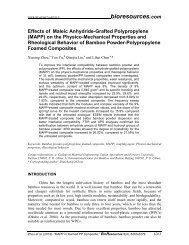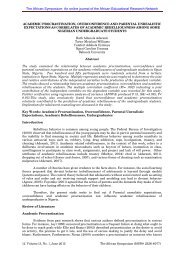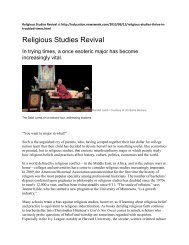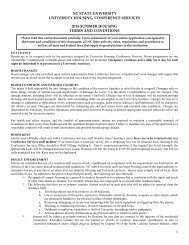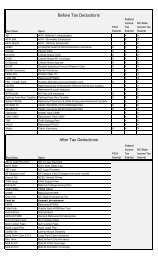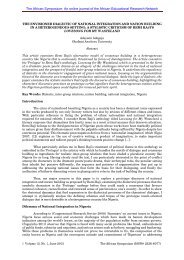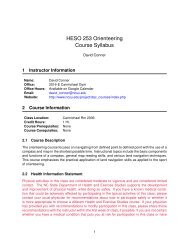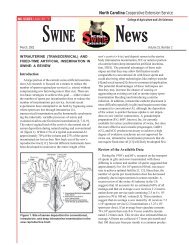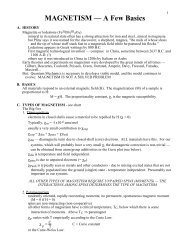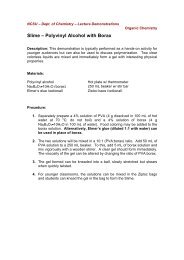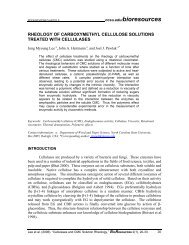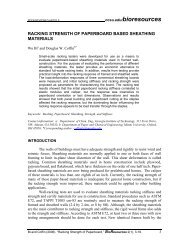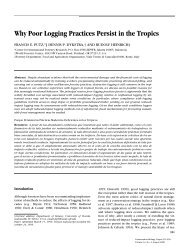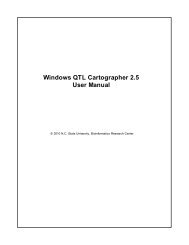Dictators, Songwriters, and the Negotiation of Censorship
Dictators, Songwriters, and the Negotiation of Censorship
Dictators, Songwriters, and the Negotiation of Censorship
You also want an ePaper? Increase the reach of your titles
YUMPU automatically turns print PDFs into web optimized ePapers that Google loves.
Wilson<br />
hay morsas ni tortugas” (ll. 12-13). As Miguel Dente explains, <strong>the</strong> song<br />
“hace mención a un brujo (López Rega), una tortuga (Illía) y una morsa<br />
(Onganía) en correlato con los sobrenombres reales de dichas<br />
personalidades políticas” (Dente 68). The recent former minister <strong>of</strong> culture<br />
López Rega, as well as former presidents Illía <strong>and</strong> Onganía, were heavily<br />
caricaturized in <strong>the</strong> media. But <strong>the</strong> days <strong>of</strong> teasing politicians are over—“El<br />
sueño acabó.” There is no mention <strong>of</strong> <strong>the</strong> present junta; instead, a<br />
gruesome image st<strong>and</strong>s in as a representation <strong>of</strong> <strong>the</strong> regime: “[u]n río de<br />
cabezas aplastadas por el mismo pie” (ll. 14-15). O<strong>the</strong>r places or times,<br />
though far from perfect, still seem relatively bucolic compared to this<br />
reality, which is so cruel that it approximates <strong>the</strong> unreal.<br />
The song also presents a description <strong>of</strong> <strong>the</strong> country under <strong>the</strong> junta,<br />
detailing a list <strong>of</strong> abuses <strong>of</strong> <strong>the</strong> regime. “El país” is <strong>the</strong> locus <strong>of</strong> massive<br />
abuses (“el asesino te asesina,” “un río de cabezas aplastadas”), but where<br />
those responsible are not punished, but ra<strong>the</strong>r enjoy <strong>the</strong> life <strong>of</strong> <strong>the</strong><br />
oligarchy: “juegan cricket bajo la luna” (ll. 16). Victims have no recourse to<br />
justice—“no tendrás poder, ni abogados, ni testigos”—but instead are<br />
perversely cast, in <strong>the</strong> Newspeak <strong>of</strong> <strong>the</strong> media, as <strong>the</strong> victimizers <strong>and</strong> as<br />
criminals: “los inocentes son los culpables / dice su Señoría, el Rey de<br />
Espadas” (ll. 21-22, 18-19).<br />
The highly distilled lyrical language <strong>of</strong> “Alicia” becomes particularly<br />
evident when compared to an earlier song on <strong>the</strong> same topic. “La marcha de<br />
la bronca”, written ten years earlier by Miguel Cantilo <strong>of</strong> Pedro y Pablo, is<br />
from <strong>the</strong> pre-Proceso period, without a doubt from a time before such<br />
literal language had been made taboo by <strong>the</strong> military regime. For example,<br />
in clear direct/descriptive language, <strong>the</strong> speaker complains that “está<br />
prohibido todo,” <strong>and</strong> that <strong>the</strong> police “entran a correr a los artistas,” whereas<br />
in “Alicia” <strong>of</strong> course <strong>the</strong>re are no such direct references. The same abuses <strong>of</strong><br />
<strong>the</strong> government are criticized in both songs, though in a very different<br />
discourse. Just as in “Alicia”, <strong>the</strong> singer in “Marcha” explains that <strong>the</strong><br />
regime can torture <strong>and</strong> kill without penalty, since <strong>of</strong>ficials hide <strong>the</strong>ir<br />
misdeeds with obfuscation <strong>and</strong> hypocrisy. But whereas it is merely<br />
70



